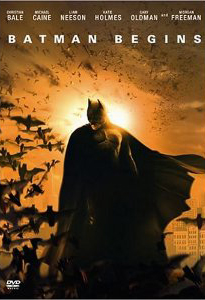 Princesses, god-like alien boy scouts and billionaires. When I was a child DC superheroes never appealed, and I think the reason lay with their remoteness from the real world. Sure they would occasionally sweep down from their secret bases onto the mean streets of Gotham or Metropolis (even the cities were made up) to beat up some working-class henchmen, but they got their moral authority (such as it was) from being above such things. In Wayne Manor, the Fortress of Solitude and wherever Wonder Woman lived (Paradise Island?) they didn’t have to mix with ordinary people.
Princesses, god-like alien boy scouts and billionaires. When I was a child DC superheroes never appealed, and I think the reason lay with their remoteness from the real world. Sure they would occasionally sweep down from their secret bases onto the mean streets of Gotham or Metropolis (even the cities were made up) to beat up some working-class henchmen, but they got their moral authority (such as it was) from being above such things. In Wayne Manor, the Fortress of Solitude and wherever Wonder Woman lived (Paradise Island?) they didn’t have to mix with ordinary people.
The heroes Stan Lee created at Marvel in the 1960s, by contrast, are from realistic communities – suburbs, rough inner cities, Yancy Street. Even when their heroes were gods they behaved like teenagers, fighting with their brothers and defying their dad. The Black Panther was royalty, but he was cool, black, African royalty. And when they did have a millionaire hero (Tony Stark), the arms-dealer’s origin involves him having his heart ripped out to teach him the error of his ways.
While watching Christopher Nolan’s mostly excellent Batman Begins, I was reminded very forcefully of why I have always found DC heroes so distant.
There is a scene, shown in flashback, of the Wayne family’s fateful journey to the theatre. They are travelling on a train and, as a depression-hit Gotham trundles past, daddy-Wayne explains to his son how his money built the train, the skyscraper that dominates the skyline and the station that entrenches Wayne Enterprises at the city’s heart. And he’s done it all, daddy says, to help the poor. But, that’s not all! He’s also given up running the family multi-national so that he can devote his time to saving the poor as a hospital doctor.
At the end of this condescending paean to patrician smugness, Joe Chill could get in line, I was ready to shoot the bugger myself.
Bruce, doesn’t ask the obvious question: “If you’re so magnanimous, why not pay a few of the city’s unemployed to cover up the huge hole in the garden I just fell down and, while they’re there, could they clear out the billions of bats that scare the bejesus out of me?” He is too awed by daddy’s munificence.
None of which has anything to do with the obvious qualities of Nolan’s exciting and surprisingly witty film. A strong performance from Bale (Bruce/Batman) is only slightly marred by the actor’s perpetual coldness. He has support from three of cinema’s finest (Caine, Neeson and Freeman) and the others (Wilkinson, Oldman and Murphy) are hardly less impressive. Caine (faithful butler Alfred) and Murphy (Crane/Scarecrow) stand out in particular. Only Holmes, as the love interest, fails to convince.
Nolan does an excellent job, taking the source material seriously enough so that the plot matters while also displaying a surprisingly light touch. There is a nice sense of fun in the way he plays with the potentially daft Bat-paraphernalia. The scenes between Bruce and Lucius Fox (Freeman) are funny and nicely balance the film’s potentially overwhelming grittiness.
The fight scenes are brutally realistic. They are not pretty or as spectacular as recent wire-fu extravaganzas, but they fit the film’s mood. Gotham is beautifully realised, a real, rundown city not the wild gothic creation of Burton or the plastic fantasia of Schumacher.
Batman Begins is an excellent summer movie, balancing action and character development, wit and violence, style and substance.
Shame, though, that I still can’t warm to a hero who seems to represent rich peoples’ primal fear of the poor, and who returns at dawn to his mansion, servants and billion-dollar business.